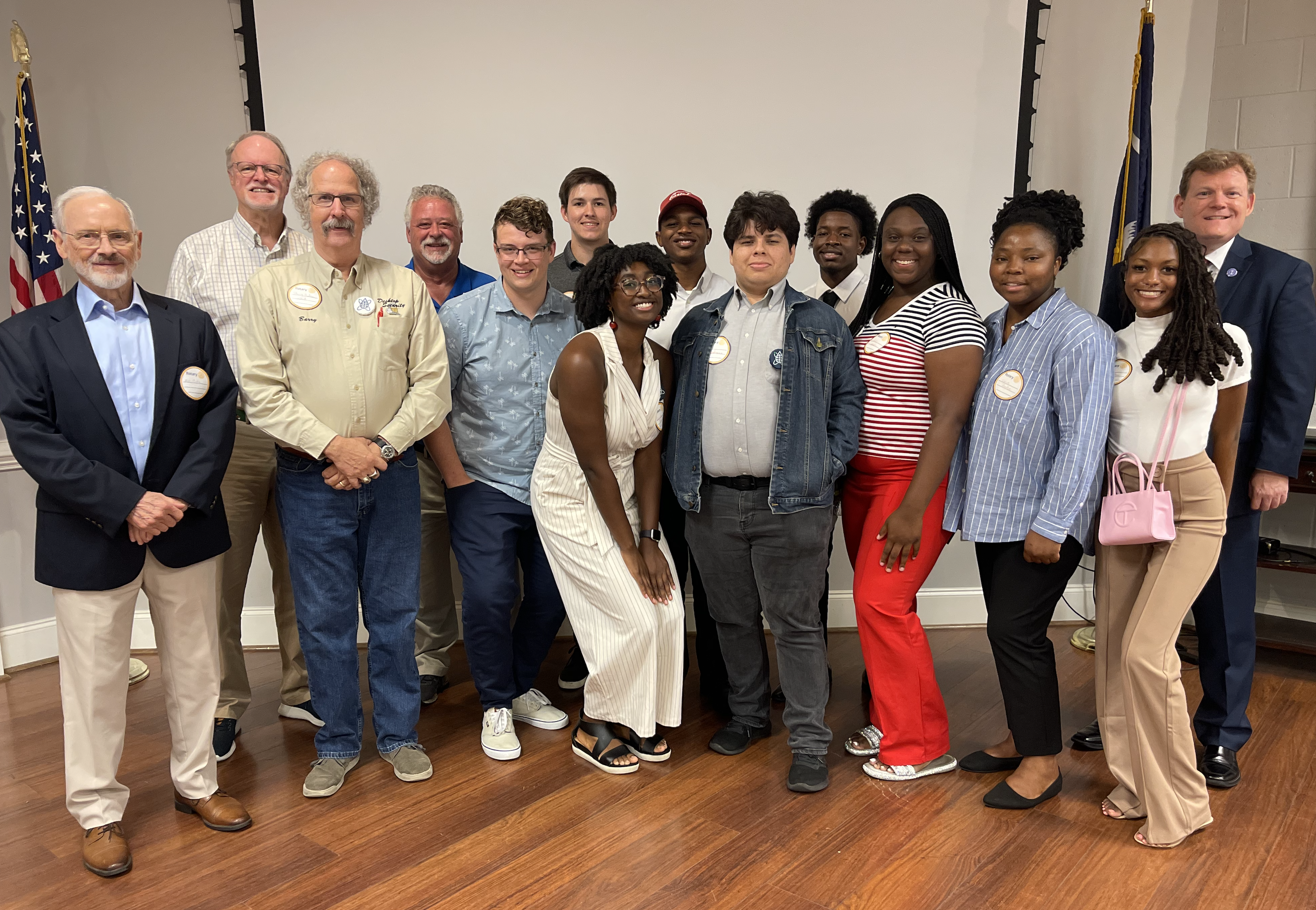Search
Browse All USCA.edu
Cyber interns educate Aiken Rotary on data safety

A group of cybersecurity interns presented on the critical importance of personal and online privacy protection at the Aiken Rotary Club meeting on Monday, July 15, at Newberry Hall. Their insights shed light on the hidden dangers lurking in the digital world, emphasizing that many people unknowingly expose significant amounts of personal information due to a lack of awareness about available privacy tools. As Christian Walker, an intern from Prairie View A&M University, aptly put it, "Security is like a lock on your front door; you don’t want everyone to see what you’re doing."
Carrington Pearson, a computer engineering major from Fayetteville State University, focused her presentation on “Protecting Personal Information on Ancestry and Obituary Sites.”
“I was very passionate about the idea of protecting privacy on websites that claim they are confidential but really aren’t,” Pearson explained. “I feel that this project brings awareness to people of all ages young and old who may not know a lot about a lack of security within corporations.”
The students come from universities nationwide and participate in the Savannah River Environmental Field Station (SRESFS) summer internship program. The program is funded by the Department of Energy’s Office of Environmental Management (DOE-EM) Minority Serving Institutions Partnership Program, managed by Savannah River National Laboratory (SRNL). The SRESFS is led by a collaboration between the University of South Carolina Aiken and South Carolina State University.
The SRESFS program consists of three tracks: engineering, environmental science, and cybersecurity, each of which emphasize current mission driven areas of the DOE. The program targets rising sophomore, junior, or senior students attending minority serving institutions with a 2.5 GPA or higher. Program benefits include $6,000, lodging on USCA’s campus, and course credits.
Rotarians were receptive to the students’ report that scams with urgent emails have quadrupled in the past four years, especially among dating and shopping websites that look official but aren’t.
Barry Hudson, one of the three of the cybersecurity professors advising the group, provides his expertise in teaching the students about cryptography, the process of hiding and coding information so that only the intended recipient can read the information being sent. “A lot of the cryptography classes are about how you can prevent people from eavesdropping,” Hudson said.
As a computer science major from Vorhees University, Bernyla Sparks finds it empowering to stand out in a field where black women are underrepresented. “I believe this program is a steppingstone for opening doors for black girls in the cybersecurity world,” Sparks said. “Hopefully, I can be a good example for women looking to work in this field.”
“We are on the right track. It turns out that 20% of cybersecurity job applicants are women and almost half of those are minorities,” Hudson said. “Our goal here is to prepare a diverse workforce.”
Computer Science majors like Mehki Freeman from Morgan State University and Jose Rodriguez from California State Chico find real value in the SRESFS program. It's more than just an add-on to their resumes, but a game-changer for real world experience.
“I feel like anything that happens on the internet there’s not much you can do about it because it’s not physical,” Freeman said. “I just figured if I’m on the other side, I can defend and protect those who need protection from hackers.”
“I hope to possibly work for the NNSA [National Nuclear Security Administration] later on in my career,” said Rodriguez. “This program is definitely a step toward that as well as meeting other people who share the same interest.”
Near the conclusion of the Rotary Club meeting the interns presented 10 coloring books with inspirational messages that will be donated to the children’s ward of Aiken Regional Medical Center
For more information, contact us at news@usca.edu.